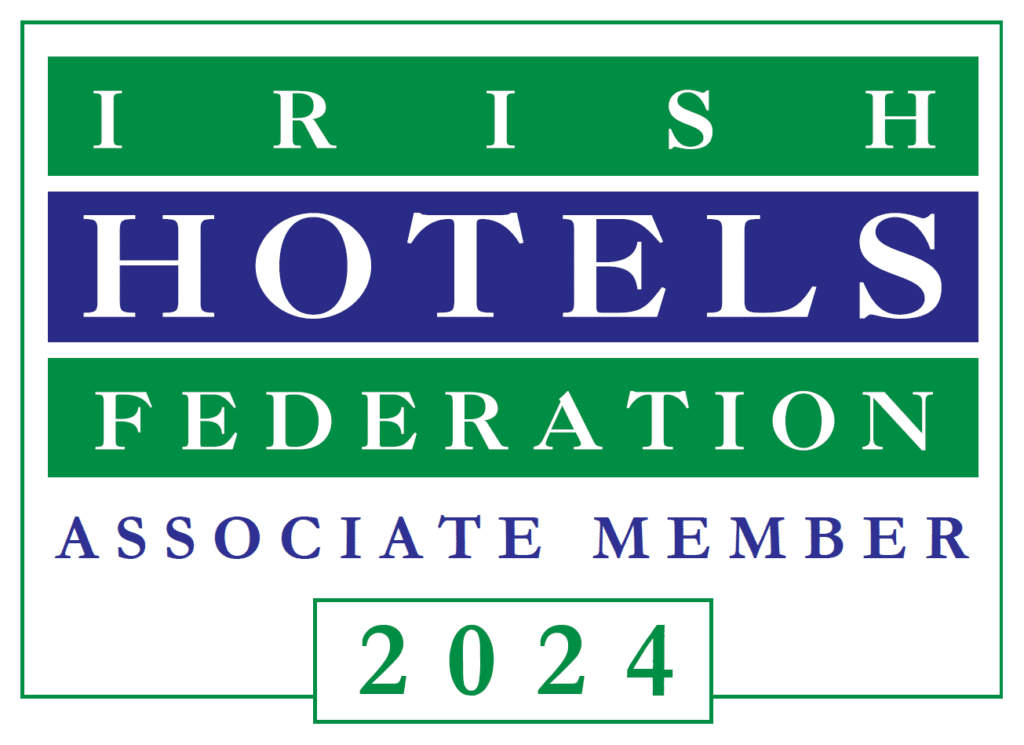Sometimes in the hospitality and revenue Industry, we come across terms that everyone seems to be using but can be easily confused or worse still, cause confusion! We’re here to help simplify some of the terms you may have seen but might not have fully understood the meaning of.
Advance Purchase Rates (APR): Cheaper rates are offered on the condition the rates are fully paid for in advance and cannot be refunded or amended in any way.
Agent: A company that acts on behalf of someone else. Example: A customer can purchase your hotel bedrooms via an agent.
All-Inclusive: Some hotels offer all-inclusive rate plans which means the guests have pre-booked and paid for all the meal plans included, breakfast, lunch, dinner.
Allocation: allocation describes the process of selecting a number of rooms and making them available for sale.
Allotment: to designate a certain block of pre-negotiated rooms that have been bought out and held by a third party such as a travel organiser, wholesaler, tour operator, travel agent, etc.
Average Length of Stay (ALOS): This is calculated by looking at a specific period
Total room nights sold / number of reservations = ALOS.
Ancillary Revenues: Refers to all revenues except room revenue. Example: Food, Beverages, phone calls, etc.
Arrivals: refers to the list of guests that are due to arrive in your hotel on a specific date.
Availability: the number of rooms you have available to sell for a specific date.
Average Daily Rate (ADR): Can also be referred to as Average Room Rate (ARR). It’s calculated by dividing the rooms revenue earned for a specific date or period by the number of rooms sold for the same date range.
Total rooms revenue / rooms sold = ADR.
Average Rate Index (ARI): It is a Hotel key performance indicator (KPI) that measures the performance of their ADR compared to their competitor set during the same period.
ARI: (Your hotels ADR/competitor set ADR) x 100 = ARI.
B&B Rate: Bed and Breakfast Rate.
Bed Nights: Bed Nights is a measurement term.
Total number of beds occupied / total number of beds available = Bed Night.
Benchmarking: A method of comparing your property to another property or set of properties.
Best Available Rate (BAR): The BAR rate is the lowest rate available.
Best Rate Guarantee: It’s a guarantee offered to customers ensuring that this is the lowest available rate, usually if the guest secures a better rate elsewhere they are compensated in some way.
BKG: acronym for Booking.
Booking: is an act of reserving an accommodation in advance.
Booking Deposit: Paying a deposit shows that you intend to come and stay in the hotel for a specific date. The deposit is typically a percentage of the accommodation total or a set fixed fee.
Booking Pace: The speed at which bookings materialize over a period from the booking date to the arrival date.
Booking Window: Is similar to Lead Time. It’s the period of time between the reservation being made by the guests/group and the actual arrival date to the hotel.
Booking Engine: A hotel booking engine is an application on a hotel website used to securely process online reservations.
Book out: When a hotel sells more rooms than they physically have, they have to perform a book out which means they have to move the extra reservations to another suitable local hotel.
Book Direct Policy: A policy that entices the guest to book directly with the hotel rather than booking via an agent. A hotels own booking engine is the cheapest way to achieve online sales.
BTB: Business to Business selling.
BTC: Business to Customer selling.
Brand Standards: refers to the properties name, logo, culture, uniforms etc.
Brand Website: refers to a property’s own website giving customers information about that property.
Business on the Books (BOB): refers the amount of reservations that have been made for a specific period.
Business Mix: Customers are defined by the reason they are staying in your hotel, i.e.: Business or Leisure. It is the breakdown between these segments. Hotels often break these segments into more detailed titles to ensure they get an accurate understanding as to why customers are booking their hotel.
Budget: A budget is an estimation of revenues that the hotel foresees happening for a period in the future.
Cancellation Policy: terms and conditions where a guest can cancel or move their reservation without financial penalties.
Central Reservation System (CRS): It is a computerized reservation software used to maintain the hotel information, room inventory and rates, to manage the reservation and process.
Channel Manager: This is a software solution that allows you to adjust availability and pricing once and then pushes this information out to all the platforms you are selling rooms on simultaneously.
Child Policy: concerning the rooms, the child policy generally offers lower rates for children up to a certain age as they do not require their own rooms and are happily hosted in a cot or extra bed in the parent’s room. Can also refer to the meal policy, children under a particular age can order from the kids’ menu.
Close Out: Refers to whether a hotel is fully booked for a night & the hotel closes all availability and does not allow any further sales for that night..
Closed to Arrive (CTA): no reservations will be taken due to arrive on a specific night. Guests can stay and book through that night but cannot arrive on that night.
Cold Call: A phone call by a company to your property, looking to secure a sale. Or vice versa your hotel cold calling companies looking to convince them to use your hotel.
Competitive Set: Hotels often choose a cluster of hotels locally to compare or measure itself to.
Complimentary (comp room): A room given to any guest with no charges incurred.
Commission: A sum, typically a set percentage of the value involved, paid to an agent in a commercial transaction (selling hotel bedrooms).
Confirmed reservation: Confirmed booking in writing.
Consortia: Are Associations or Marketing organizations which link together small and medium sized independent travel agencies to leverage purchasing power and marketing opportunities. Examples are American Express, Carlson Wagonlit, BCD Travel, HRG.
Corporate Rate: A special reduced rate for large companies or individual guests staying on business under negotiated terms in your hotel. The rate is often tied to delivering a certain number of nights per annum.
Customer Relationship Management (CRM): It is a system to record sales calls and leads to companies.
Cut-Off Date: Date at which all unused guest rooms in a room block will be released to the public for sale Day Guests: Guests that arrive and leave on the same day, only stayed in the hotel bedroom for a small period/number of hours and not overnight.
DBB: Dinner Bed and Breakfast rate.
Destination Management Company (DMC): Local companies specialise in booking events for inbound travel. Their expertise extends to hotels, local attractions, booking tours, entertainment, etc. Typically for groups of people.
Demand: Anticipated business for a future date or period.
Departures: refers to a list of guests that are due to depart your hotel on a specific date.
Displacement Analysis: Series of formulas used to analyse the total value lost by guaranteeing rooms to a group that might otherwise be booked by transient, higher-yielding business for the same night/period.
Distressed Inventory: Last-minute discounted hotel rooms to ensure a property reaches as high occupancy as possible.
Double Occupancy (DBL): The hotel rate covers up to 2 people in the room.
Dynamic Pricing: Flexed pricing based on demand and booking pace in order to achieve a higher RevPAR.
Early Arrival: An agreement with a hotel that allows confirmed guests to check-in before the standard time.
Early Bird Discount: enticing the customer to book early to achieve a lower rate.
ETA: Estimated Time of Arrival.
EBITDA: Earnings Before Interest, Taxes, Depreciation and Amortization.
EBITDAR: Earnings Before Interest, Taxes, Depreciation, Amortisation, and Rent.
Event Date: Means the date an event is to be held. Usually refers to high demand dates which we anticipate higher demand and as a result we protect that date from lower rates. Such as concerts, large sporting events, etc.
Extranet: This is a controlled private network that allows hotels to load inventory and rates which can be booked by customers privately or publicly. Each OTA would have their own unique extranet that they allow hotels to load rates and inventory on. Hotels pay each OTA a commission for each booking received via this platform.
F&B: Industry acronym for Food and Beverage.
FAM Trip: Organized trips for members of the travel trade to familiarize them with tourism destinations and hotels. With a view to them selling your hotel for a commission fee.
Fenced Rate: usually a private rate that is contingent on certain requirements being fulfilled by the booking party.
Foreign Individual Traveller (FIT): A guest who has prepaid for their travel before arriving at your hotel. The bill (which is an undisclosed rate to the guest) is invoiced back to the agent on departure.
Flash Sales: Are highly discounted and time-limited sale promotions. Hotels usually use this way of discounted sales to sell any distressed inventory or off-season periods.
Forecast: An analysis that estimates the revenue expectations for an upcoming period.
Free of Charge (FOC): If something is free of charge, it does not cost anything.
Full Board: A rate that includes the provision of bed and covers all standard meals.
Guaranteed Booking: Payment must be made even if the guest fails to arrive, except where cancellation procedures of the hotel allow an escape.
Global Distribution System (GDS): Is a computerised network system that enables transactions between travel industry service providers, mainly airlines, hotels, car rental companies, and travel agencies for a commission fee.
Group Rate: Rate secured for all rooms in a room block for an event.
Gross Rate: The gross rate is the full price of the room the customer pays before any taxes and ancillary revenues are deducted.
Half Board: A rate that includes provision of bed, breakfast and one main meal.
Internet Distribution System (IDS): This term is generally used to express the hotels distribution via the Internet.
High Season: Refers to a period when the hotel has the highest amount of demand.
Inventory: Refers to the number of bedrooms available for sale at the hotel.
Interface: is the crossing point or technical connection between different IT systems. In other words, it is the direct communication/connection between two (or more) networks/applications/systems that can be interlinked together without any intermediary.
Key Performance Indicator (KPI): Metric widely used as a measurement of business performance.
Last Room Availability (LRA): A guarantee given to your biggest bookers that allows them to book the hotel’s last available room at a contracted rate.
Lead: A term used for a company that has shown potential interest in booking your property.
Lead-in Time: Refers to the time between the date the reservation was made and the arrival time.
Length of Stay (LOS): Total nights that a guest spends with a hotel.
Local Negotiated Rate: Hotels often extend a lower priced private rate to local companies and in return are guaranteed a certain amount of business per annum. The lower rate can be accepted as in return you receive business throughout the full year/quite periods.
Low Season: refers to a period when the hotel typically struggles to sell bedrooms as there is less demand.
Market Segments: An identified group in an overall market to which your hotel appeals. This is used in the hotel industry to determine who responds to a lead.
Market Share: A percentage of business within a market category.
MICE: Industry acronym for Meetings, Incentives, Conference and Exhibitions.
Minimum Length of Stay (MLOS): is often implemented in a hotel that is facing a high demand period and it ensures the property protects the shoulder nights either side.
Market Penetration Index (MPI): is a calculation to measure your hotel´s occupancy compared to the average market occupancy levels.
Net Rate: A hotel rate given by travel agents and tour companies that can be marked up and sold at a higher rate to the end customer.
Negotiated Rate: Companies/Individuals that regularly use a hotel, they seek a more competitive rate which is a private rate between the two parties, which is not to be disclosed.
No-Show: Term for reservations where the confirmed party does not show up without contacting the hotel to cancel or change their booking. Typically, hotels can charge the guests in full for the first night’s accommodation in this situation.
Occupancy: The measure of filling the hotel by dividing the total number of rooms occupied by the number of rooms available.
Occupancy Rate: An average of occupancy over a defined period of dates.
Opaque Sites/Channel: are booking channels and OTA websites where the supplier (in this case the hotel) remains hidden until after the purchase is complete.
Opaque Rates: these are hidden hotel bedroom rates that are bundled and sold as part of a package, i.e. customer books hotel, flights and car hire combined.
Online Travel Agent (OTA): These are online travel agents whose websites allow customers to book various travel related services via the Internet. Hotels list their hotels imagery and content on these OTAs & pay a commission for each reservation.
Overbooking: When more rooms are sold than are physically available to sell.
Pax: Another term for number of people or passengers.
Peak Night: Term for a specific date where there is high demand for that date, e.g. concert, conference, sporting event.
Peak Season: Season or set of dates where occupancy for a hotel is at its highest.
PPPN: Industry acronym for per person, per night.
Preferred Rate: A negotiated private rate between the hotel and a specific client.
Prepaid Rate: Refers to paying for a hotel at the time of the reservation and in return you receive a discount off the BAR.
Pre-Authorisation of a Credit Card: pre-authorisation is a temporary hold on funds in a customer’s account that lasts around 5 days. Unlike an actual transaction, you aren’t moving any funds yet, it simply puts an official hold on those funds ensuring the customer can meet the hotel bill on departure and also ensuring the credit card is a valid card.
Price Match: This is an agreement to match a hotel rate should the customer find a lower rate within a specific period of time from making the original booking.
Provisional Booking: this is a reservation that is held for a short period of time (agreed at reservation stage) with no guarantee that the booking will proceed.
Property Management System (PMS): A hotel property management system is a software platform that enables a hotel to manage front-office capabilities, such as booking reservations, guest check-in/check-out, room assignment, managing room rates, and billing.
Point of Sale (POS): A point-of-sale (POS) transaction is what takes place between a hotel and a customer when a product or service is purchased.
Rack Rate: The original price of a hotel room before any discounts or promotional rates are applied.
Rate Parity: Under certain conditions, a travel supplier, such as a hotel, keeps the same price across all different distribution channels.
Rate Plan: this is the package that a particular guest has reserved: Room Only, B&B, Dinner B&B etc.
Referral Business: Usually refers to word of mouth referrals. Where a hotel has secured a piece of business that someone has recommended them for. It’s usually a past customer or agent.
Release Date: Date at which all unsold guest rooms in a room block will be released to the general public for sale.
Repeat Business: Returning business generating an increase in profit.
Request for Proposal (RFP): Is a document that solicits a proposal, often made through a bidding process by an agency or company interested in procurement of a commodity or service, to potential suppliers to submit business proposals.
Reservation Fee: refers to the fee charged by a hotel for booking a room. Reservation fees protect the hotel, as they allow it to have some security that if the room does get cancelled, they receive compensation for the cancelled booking.
Revenue Management: Continued analysis that predicts demand and at a micro level you can optimise your availability and pricing strategy while also reducing costs, ensuring the highest level of RevPAR possible.
Revenue Management System (RMS): Is a software solution which allows you to carry out the important revenue management tasks more efficiently and effectively. It automates all processes to save time and reduce human errors.
Revenue Per Available Room (RevPAR): Is a performance metric used in the hotel industry. It is calculated by dividing a hotel’s total room revenue by the total number of available rooms in the period being measured.
RevPAR Index (RPI): Metric that indicates how a specific hotels RevPAR compares to that of its comp set.
Room Block: Refers to a group of rooms reserved for a specific customer, usually for a set period.
Room Nights: Rooms blocked or occupied multiplied by the number of nights the rooms are reserved.
Room Only (RO): Customer is paying for the bedroom only with no meals included.
Room Type: refers to the different types of rooms a hotel has. Twin, Double, Triple, Suites, etc.
Run of House (ROH): In hotel terms means a basic room type with no guaranteed specific amenities.
Yield: An equation averaging revenue from all rooms, divided by number of rooms in a hotel, divided by 365 nights.
Yield Management: Process of understanding, anticipating, and reacting to consumer behaviour to maximize revenue. Also known as Revenue Management.
Sales Blitz: Is an organized effort by a company to focus its sales force on a specific task in one territory.
Sales Strategy: Is a plan by the hotel on how to go about selling its products and services and ultimately increasing profits.
Shoulder Dates: Nights that generally have less occupancy than peak night.
Shoulder Season: Period adjacent to the peak season with lower occupancy, but not the lowest occupancy of the year.
Star Rating: Hotels, if they wish to do so can be graded by the tourist board. Each property must meet each of the criteria relevant to that classification in order to achieve that specific grading.
Source of Business: this is a term used to determine how a guest heard about the hotel in order to further expand marketing and promotion efforts to maximise profitability.
Stop Sell: The act of stopping the hotel from being booked on distribution channels, used when a hotel is sold out during a certain time period or chooses not to sell any more rooms.
TAX: The additional charges applied by the city or government.
Third Party Intermediaries (TPI): as per OTAs above.
Third Party Planner: An experienced intermediary who may coordinate site selection or end-to-end event management for a planner.
Trade Show: Industry-specific exhibition of products or services. An exhibition of products and/or services held for members of a common or related industry. Not open to the general public.
Transient Business: Segment of business comprised of individual bookings as opposed to bookings from a group.
Two Way Integration: Means that there is an API (connector programming code) that allows information to be sent back and forth between two pieces of software. Typically, in hotels it refers to information being passed back and forth from your PMS and another piece of software such as a channel manager, guest confirmation software, POS, telephone system, key card system.
Unqualified Rates: Rates offered to hotel guests without restrictions or conditions for booking.
USP: Unique selling points.
Value Added Tax (VAT): The additional charges applied by the city or government.
Very Important Person (VIP): Individuals who should receive special or elevated treatment based on their role or relationship to an event.
Vouchers: Is a prepaid ‘coupon’ given to a guest for a specific prepaid service or to a certain value amount.
Walk: Moving guests to a nearby hotel when overbooking occurs.
Walk-in: A customer that walks into your hotel to book a room.
Wholesaler: A third-party organization that sells hotel rooms such as sites, distribution channels, extranets, or merchants.
If you have any questions or queries about whether Rate Wise is right for your business, contact our dedicated support team. We can answer any questions you might have about Yield Management, Software Solutions, and Rate Forecasting.




